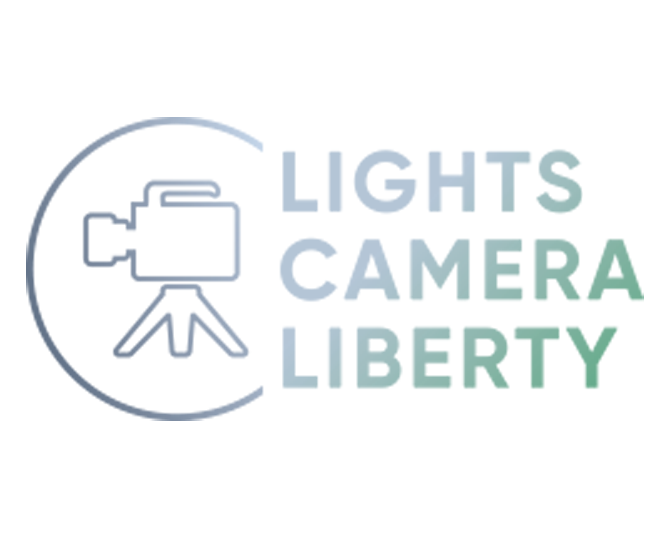
Property foreclosures, restorative justice, right to work, and entrepreneurship are at the core of five films that will be recognized at this year’s Lights, Camera, Liberty Film Festival. The five finalists for 2020 are Seize This House, by U.S.-based Pacific Legal Foundation; How to Love Your Enemy: A Restorative Justice Story, by U.S.-based Free the People; Right to Work, by Serbia’s Center for Anti-Authoritarian Studies; Fables for Liberty, by Argentina’s Fundación Libertad y Progreso; and Motorbike License, by Nepal’s Bikalpa—An Alternative.
Lights, Camera, Liberty is an annual film workshop that helps Atlas Network partners transform the way they market their messages through online video. Video projects created by Lights, Camera, Liberty participants are eligible for the festival. This year’s Lights, Camera, Liberty Film Festival Award winner, who will receive a $10,000 prize, will be announced at Liberty Forum & Freedom Dinner online on November 11–12.
Pacific Legal Foundation: Seize This House
Homeownership is one of the most important steps that a family takes. The Pacific Legal Foundation pokes fun at the complexity of homeownership when it comes to taxes but also highlights the reality of a situation that has ripped families out of their homes and ruined countless lives. A lack of understanding and an overcomplicated tax code has made homeownership a thing of the past for many.
Free the People: How to Love Your Enemy: A Restorative Justice Story
Being swept up in the criminal justice system often traps people in cycles of recidivism in the United States—where the recidivism rate nationally is over 60 percent. A contributing cause are the unnecessary barriers that are put in the paths of returning citizens. Free the People highlights a new approach to policing—restorative justice—that brings together victims, offenders, police officers, and members of the community to work through a solution. The video offers real-life examples of restorative justice in Longmont, Colorado, and highlights how it is often a better and more satisfying alternative for both the victim and offender (and even for the officer and community members).
Fundación Libertad Progreso: Fables for Liberty
To introduce the ideas of liberty, entrepreneurship, and personal responsibility, Fundación Libertad y Progreso (LyP) has developed a tool for parents and children. Through a series of animated fables, LyP hopes to make it easier for individuals of all ages to understand the benefits of a free society. The videos are based on the stories of classic French fabulist Jean de La Fontaine, but are revised to teach important lessons of entrepreneurship and economic freedom. The first story of the series is La Fontaine’s “The Grasshopper and the Ants.” In LyP’s retelling, the grasshopper is replaced by a cicada who uses his own entrepreneurial spirit to support the ants who feed him in return. By using stories that are both familiar and easily understood, LyP is encouraging families to approach the ideas of liberty together.
Center for Anti-Authoritarian Studies: Right to Work
Arbitrary regulations, excessively high taxes, and an overall resentment towards business owners and job creators have made life especially difficult for Serbian entrepreneurs. The Center for Anti-Authoritarian Studies tells the stories of three entrepreneurs—a shoemaker, a cheesemaker, and a seamstress—who have turned their passions into their careers. Limits on milk and cheese production, quality certificate requirements, and astronomically high tax rates have made it difficult for Serbian businesses to stay afloat and hire additional workers, and have contributed to one of the highest poverty rates in Europe.
Bikalpa, an Alternative: Motorbike License
In Nepal, getting a motorbike license is extremely time-consuming and expensive, making it difficult for citizens to commute to and from work. Bikalpa, an Alternative tells the story of a low-income Nepali man trying to earn a living, who is constantly berated by local law enforcement. Since he cannot afford the 200,000 Nepalese Rupees to get a license, he bribes the officers, using the money that was intended for his family’s dinner. “The rule of law is not for the common people,” he explains, “it is only for those who are in power.”
The finalists will attend Liberty Forum & Freedom Dinner Online to present their videos in the Lights, Camera, Liberty Film Festival and the winner will receive a $10,000 cash prize. This year we're incorporating an audience vote in the process of picking the winner. Over the next few weeks we will open up voting to the finalist's network of staff, supporters, friends, and family—and this will count for 50 percent of the final score in determining the winner of the Film Festival. To vote, click here.